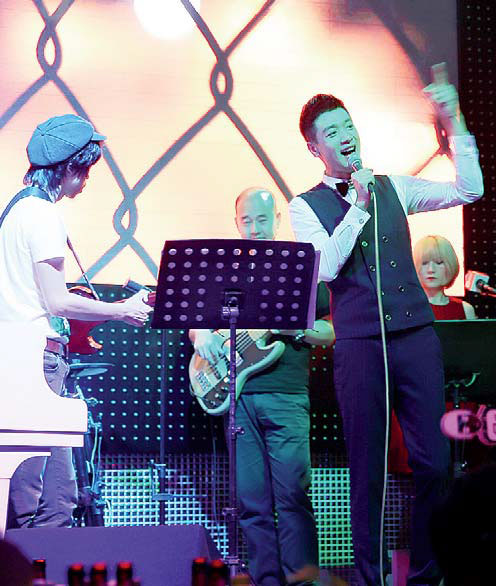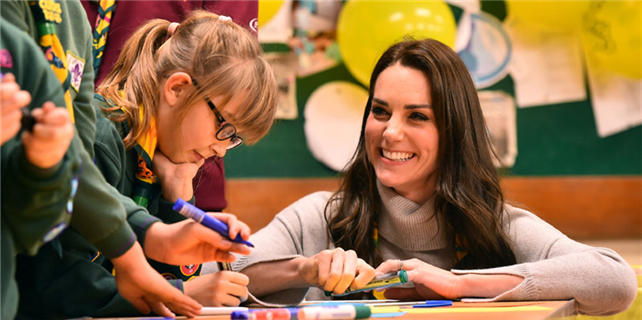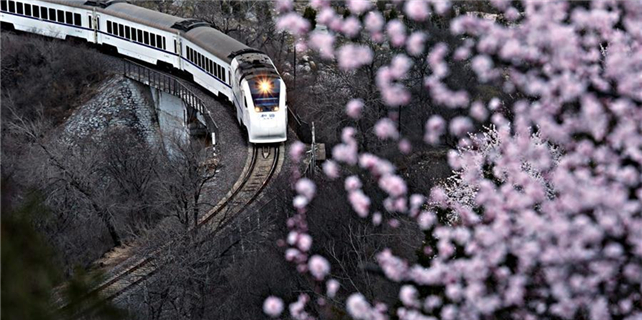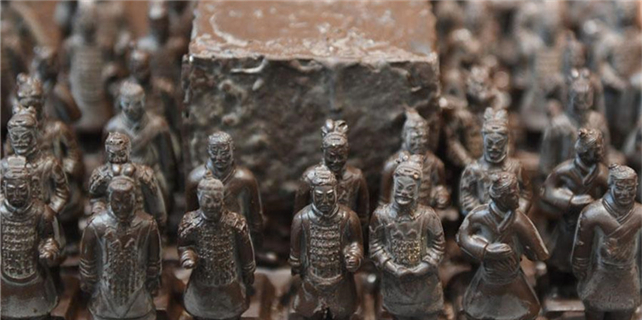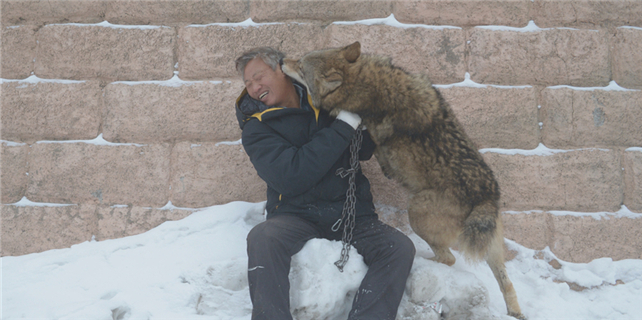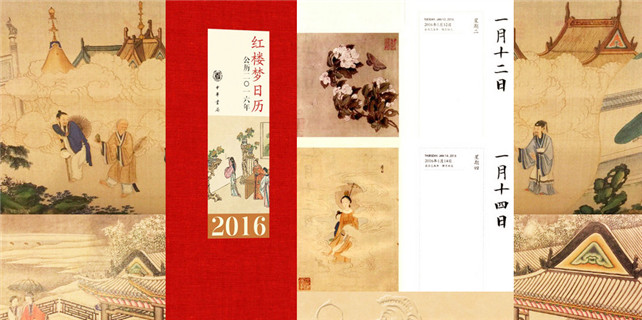Singing has stayed in tune with the times
First they did it in karaoke bars, then they did it in living rooms and now they're doing it in the bedroom.
In the early 1990s, karaoke bars began springing up all over China. Before long, for many people, singing became the after-dinner entertainment of choice.
Then, with the help of computer programs that could provide anyone with a karaoke DJ, the venue changed. It became possible to organize karaoke parties at home or simply entertain yourself. At the same time, you can fantasize about being a star.
In the next wave of change, in the era of the internet - and lately through apps and social networking - software has become much more sophisticated. Thus, a form of leisure that had been enjoyed in public but had retreated to the private realm, reasserted itself in public, thanks to live streaming and the ability to distribute music and engage with audiences.
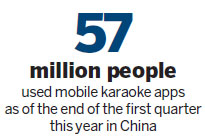
A report by Beijing internet consultancy Analysys suggests that the new lease on life for karaoke could at least partly be attributed to the huge popularity of television talent shows. In fact, some of the companies that develop and distribute mobile karaoke apps have formed alliances with TV producers as they seek to cash in on the popularity of the shows.
In the first quarter of this year, more than 57 million mobile karaoke apps had been installed on devices in China, Analysys says, with most users born in the 1990s.
Many were from provincial capitals; most were students, freelancers or self-employed; and female users outnumbered males. About 62 percent of the users of the app Changba were female, as were about 60 percent of the users of WeSing, according to analysys.
The apps provide a good platform for budding internet celebrities to become better known, Analysys says, and once they are well known enough they can take part in the apps' singing contests or reality shows to become even better known.
|
Zhang xin, a Changba celebrity singer, performs at a bar. |
(China Daily European Weekly 12/16/2016 page16)



